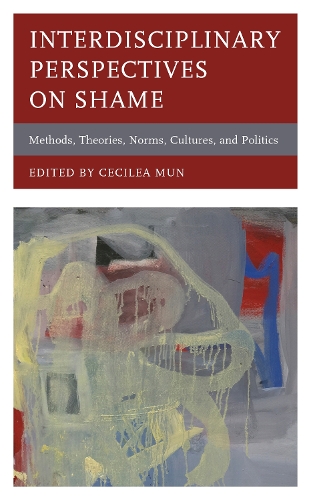
Interdisciplinary Perspectives on Shame: Methods, Theories, Norms, Cultures, and Politics
(Hardback)
Available Formats
Publishing Details
Interdisciplinary Perspectives on Shame: Methods, Theories, Norms, Cultures, and Politics
By (Author) Cecilea Mun
Contributions by Dolichan Kollareth
Contributions by Mariko Kikutani
Contributions by James A. Russell
Contributions by Cecilea Mun
Contributions by Laura Candiotto
Contributions by Matthew Rukgaber
Contributions by Daniel Herbert
Contributions by Alba Montes Snchez
Contributions by Lisa Cassidy
Bloomsbury Publishing PLC
Lexington Books
9th October 2019
United States
Classifications
Professional and Scholarly
Non Fiction
Social, group or collective psychology
Religion: general
152.4
Physical Properties
Hardback
240
Width 160mm, Height 227mm, Spine 23mm
558g
Description
Shame is one of the most stigmatized and stigmatizing of emotions. Often characterized as an emotion in which the subject holds a global, negative self-assessment, shame is typically understood to mark the subject as being inadequate in some way, and a sizable amount of work on shame focuses on its problematic or unhealthy aspects, effects, or consequences. Interdisciplinary Perspectives on Shame brings into view a more balanced understanding of what shame is and its value and social function. The contributors recognize shame as a complex, richly layered, conscious or unconscious phenomenon, and the collection offers an understanding of what shame is, the scholarly discourse on shame, and how theories of shame help us to understand ourselves, others, and the world around us. It also highlights a diverse range of perspectives on shame, and how these unique perspectives can enlighten our understanding of both the positive and negative aspects of this powerful emotion. Edited by Cecilea Mun, the ten chapters by an international group of contributors reflect a broad range of methods, disciplinary perspectives, and both theoretical and practical concerns regarding shame.
Reviews
According to many psychologists and philosophers, shame is a painful emotion of the vulnerable self, an ugly and negative feeling and a destructive and pathological state of the mind. By breaking and softening the boundaries of academic disciplines and adopting integrative viewpoints, however, Cecilia Mun and the authors of this volume carefully develop inclusive and holistic interpretations of shame to demonstrate that shame is more than a negative and self-critical emotion with depressive feeling and reactive attitude. In their chapters, they argue convincingly that shame is the unique and powerful human experience of self-consciousness, interpersonal relation, norm, culture, politics, body, ontology, phenomenology, and rationality. This volume provides much-needed multidimensional analysis of shame and expands the horizon of how we study and understand shame with an insightful and stimulating collection of essays, a valuable contribution to the interdisciplinary study of shame that both scholars and students can benefit from. -- Bongrae Seok, Alvernia University
Author Bio
Cecilea Mun received her Ph.D. in philosophy from Arizona State University.
